The Living Bee Museum Knuellwald
© by Hans-Joachim Flügel
Last Update: 31.10.2018
 Traditional Museum, Science- and Learning
Station
Traditional Museum, Science- and Learning
Station

Since 2000 the exihibition rooms of the Living Bee Museum, Knuellwald, have been established in a half-timbered farmhouse, with beekeeping displays from many areas of Germany, and from almost all the surrounding contries.
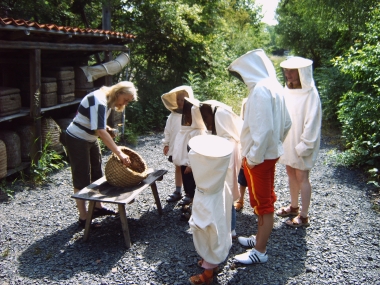
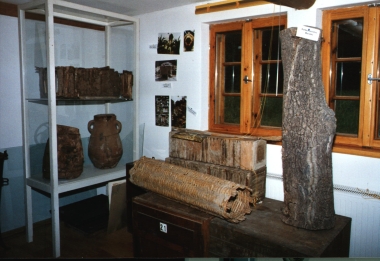
Displays from all over the world demonstrate the relationship man and bee, as for instance, an original Yucatán "tronco", as used by the Mayans for keeping Melipones (stingless) bees. In addition to the bees and the use of the various historical bee hives and beekeeping tools, the closest relatives of bees, the social wasps and their significance for man are explained.
In an open area of 3000 square meters with many insect-attracting flowering plants we can observe a great number of flower-visiting insects, during the growing season.Also there are larger exhibits, such as a typical Central European beehouse, a much used 'bee wanderwagon' of the former GDR, and a heather bee-straw hive stand.
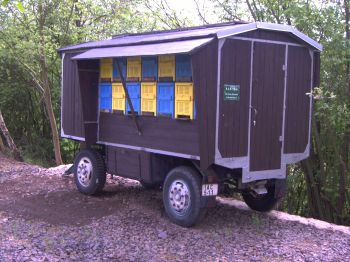
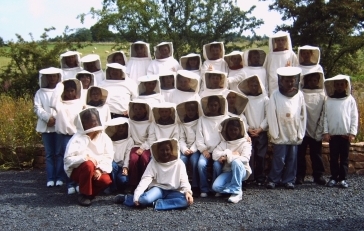
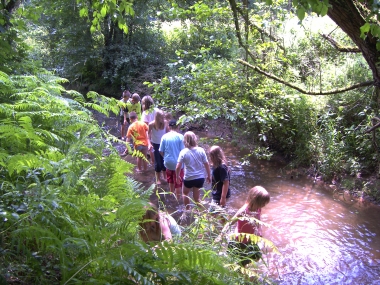
Editor: Living Bee Museum Knuellwald
Editorship and organisation: Hans-Joachim Flügel
ISSN: 1613-8457
Source of supply: Lebendiges Bienenmuseum Knüllwald
Beiseförther Str. 12, 34593 Knüllwald
Tel.: 05685-499; e-Mail: bienenmuseum-knuellwald@web.de
Charge per journal: 5 Euro in addition to postage (within Germany postfree; Europa: + 1 Euro, World: + 1 Euro, World (by airmail): + 5 Euro).
www.fragrancex.com/fragrance-information/beekeeping-adults-kids.html
www.avasflowers.net/why-bees-and-pollination-are-so-important